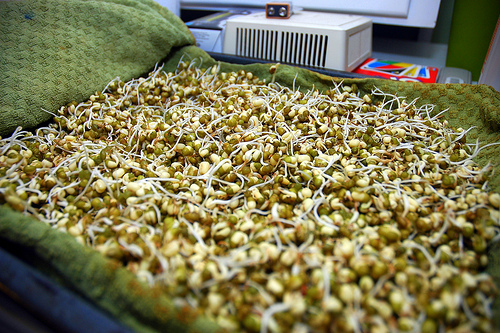What’s in a name?
I’m not sure how I got into the habit of referring to those closest to me by their initials: “L” for “Lena,” “K” for “Kinga.” Perhaps it was a sense of anonymity for those who don’t know us personally, but we don’t get many of those kind of visitors. Still, it’s a stylistic choice, one which I will continue.
Except for this post.
“Lena,” I also learned after naming our daughter, is a famous picture: “The Lenna (or Lena) picture is one of the most widely used standard test images used for compression algorithms.” (Source)
When Lena was still an unimaginably large bump in Kinga’s belly, we weren’t sure what to name her. We’d thought about naming her after her Polish grandmother, Janina. Yet, knowing the difference in pronunciation of “j” in Polish and English (It’s “y” as in “yeah” in Polish, for the uninitiated), we opted out due to the tendency everyone would have to mistakenly mispronounce her name. (The irony is, they still do it with “Lena,” for most want to pronounce it with a long “ee.”)
Our next choice was Amelia, but we were hesitated.
It was at this point, I believe, that Kinga suggested Lena, and I liked the name immediately. We settled on “Lena” fairly quickly once Kinga suggested it.
It had all the qualities we were looking for in a name:
- It was strong and feminine.
- It could be easily pronounced by Americans (a criterion which quickly would have ruled out Wladyslawa, Malgorzata, and most definitely Zdzislawa, had they been in the running).
- It was fairly uncommon but didn’t have that made-up feel. “I only know one ‘Lena,’ from college,” Kinga informed me.
The most uncommon name I’ve heard of is “La-a,” which is alternately spelled “Le’a.” It’s pronounced “Ladasha.” (The alternate spelling might also be pronounsed “Laapastrophea” or “Lainvertedcommaa.”) I’ve heard this is an urban legend, but Google “La-a” and you’ll get baby name site results for “La-a.”
Now, though, Lenas are popping up like mushrooms after a storm. Two of our friends have since named their daughters Lena; a friend who works in the hospital tells us that there are a lot of Lenas in the maternity ward.
And the same is true for Amelia. Very, very popular.
Part of me wants to say we were simply on the cutting edge of naming. By it also seems to hint at some kind of hidden current in societies that suggests things that bubble up slowly. After all, we only know two of the multitude of families who’ve opted for “Lena,” so the phenomenon can’t be attributed to our influence, as flattering as that might be.
K is frustrated. (The old habit returns…) “If we had another daughter, I’d want to name her ‘Amelia.'” And now we can’t.
Zdzislawa is looking better and better…
There’s also the LENA language system and a rock star in New York, not to mention the famous Polish/Czech Lenka pop star, and the Australian Lenka actress/pop singer.
A parallel thought to this is how children seem to grow into their names. Lena is a Lena. There’s no other name that seems to fit her, just like Madeline is Madeline. The name “Lena” is short and energetic, strong and joyful, single-minded; the girl Lena is short and energetic, strong and joyful, single-minded. “Amelia” would never fit Lena, and “Janina” is a worse match still.
When I was in college, I tried to go by my middle name, Lawrence. At the time, it somehow sounded more intellectual, more serious, than “Gary.” The trouble was, I could never remember that I was Lawrence. I gave up after one semester and took to heart how ingrained our names become.
Which makes me wonder about Bono, Eminem, Sting, Prince, Moby, Twiggy, Dido, Goldie, Cher, Lulu, Pink, and Seal. Do they so identify with their stage names that they prefer them to their real name? Do Sting’s closest friends call him “Sting” or “Gordon?” Does Bono go by “Paul” when the band is recording? And Prince — that’s a case all by itself.
So was Shakespeare right? Yes and no. Lena is not “Amelia,” though if we’d named her Amelia, I would be have reversed those names…
